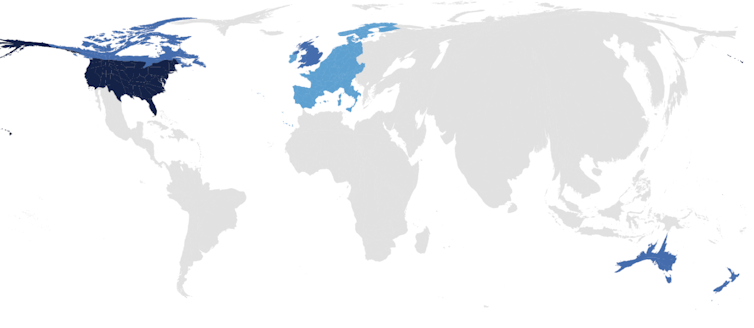Daniel Hruschka at the Conversation: “Over the last century, behavioral researchers have revealed the biases and prejudices that shape how people see the world and the carrots and sticks that influence our daily actions. Their discoveries have filled psychology textbooks and inspired generations of students. They’ve also informed how businesses manage their employees, how educators develop new curricula and how political campaigns persuade and motivate voters.
But a growing body of research has raised concerns that many of these discoveries suffer from severe biases of their own. Specifically, the vast majority of what we know about human psychology and behavior comes from studies conducted with a narrow slice of humanity – college students, middle-class respondents living near universities and highly educated residents of wealthy, industrialized and democratic nations.

To illustrate the extent of this bias, consider that more than 90 percent of studies recently published in psychological science’s flagship journal come from countries representing less than 15 percent of the world’s population.
If people thought and behaved in basically the same ways worldwide, selective attention to these typical participants would not be a problem. Unfortunately, in those rare cases where researchers have reached out to a broader range of humanity, they frequently find that the “usual suspects” most often included as participants in psychology studies are actually outliers. They stand apart from the vast majority of humanity in things like how they divvy up windfalls with strangers, how they reason about moral dilemmas and how they perceive optical illusions.
Given that these typical participants are often outliers, many scholars now describe them and the findings associated with them using the acronym WEIRD, for Western, educated, industrialized, rich and democratic.
WEIRD isn’t universal
Because so little research has been conducted outside this narrow set of typical participants, anthropologists like me cannot be sure how pervasive or consequential the problem is. A growing body of case studies suggests, though, that assuming such typical participants are the norm worldwide is not only scientifically suspect but can also have practical consequences….(More)”.
